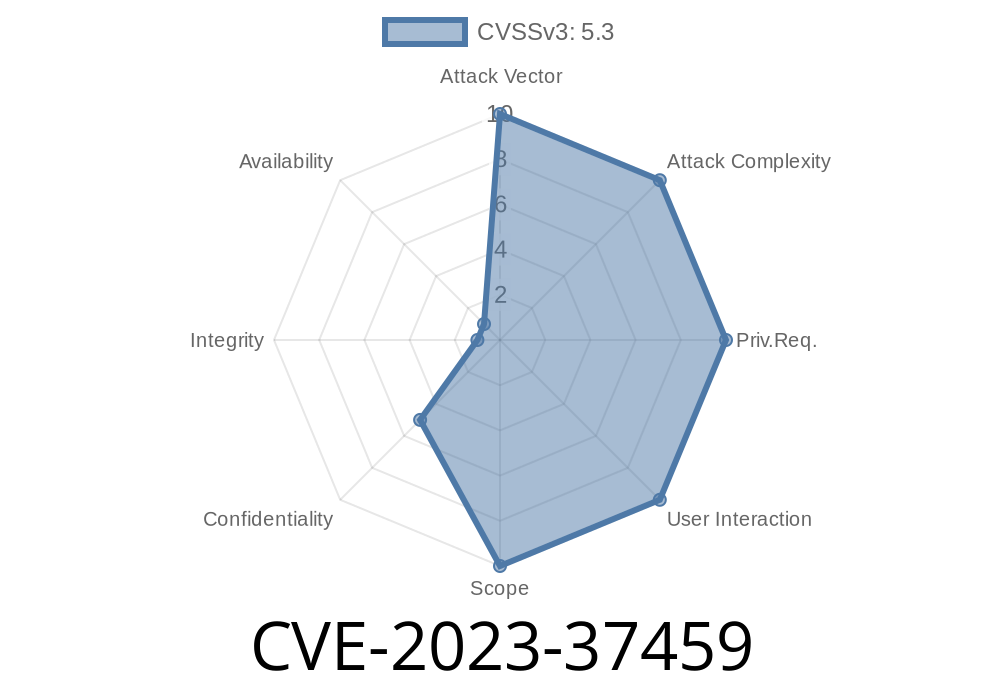Contiki-NG is a popular open-source operating system designed for resource-constrained Internet-of-Things (IoT) devices. Devices like sensors, smart bulbs, and small gateways worldwide depend on Contiki-NG for efficient networking with minimal resource usage. But in July 2023, a worrying issue surfaced—CVE-2023-37459—that could put countless IoT devices at risk.
Let’s break down what this vulnerability means, how it can be exploited, and what you can do to secure your devices.
What’s the Problem?
In Contiki-NG versions 4.9 and earlier, there’s a weakness in how incoming TCP (Transmission Control Protocol) packets are processed. When the network stack receives any packet, it checks if it’s a TCP packet with the SYN flag set (SYN packets are used to start a TCP connection).
The core issue? The system does not fully verify that a complete TCP header has been received before accessing its content. Instead, it tries to extract the “flags” field regardless of whether enough packet data is present in the buffer.
Here’s the relevant code (from the check_for_tcp_syn function, simplified for clarity)
static int
check_for_tcp_syn(const uint8_t *packet, size_t len)
{
// TCP header is usually at least 20 bytes
const struct tcp_hdr *tcphdr = (const struct tcp_hdr *)packet;
// The vulnerable code: accesses flags without checking full header length
if(tcphdr->flags & TCP_SYN) {
// start periodic TCP timer...
}
}
The function above assumes packet points to a buffer holding at least a full tcp_hdr structure. However, if an attacker sends a truncated packet, the flags field may not exist within the provided buffer. This leads to an out-of-bounds read—the code accesses memory beyond the buffer’s actual size.
Exploit Scenario
Attacker’s Perspective:
An attacker crafts a small network packet that claims to be a TCP packet (typically by setting the IP protocol field to TCP) but is too short to contain a full TCP header.
Worst case: the device crashes, leaks memory contents, or exhibits undefined behavior.
- If exploited at scale, such a bug could be abused to disrupt device fleets or, depending on other weaknesses, to leak device memory.
Denial-of-Service (DoS): Devices may crash or hang, requiring manual reboot or intervention.
- Information Leakage: (less likely, but possible) Memory content may be exposed if the bug leaks data in return packet or logs.
- Potential for Further Exploitation: The out-of-bounds read may pave the way for deeper memory corruption, depending on the device architecture and stack layout.
No Official Patch Yet
As of the time of writing, there is no official patch in the main Contiki-NG releases. The vulnerability has been acknowledged by the maintainers, but a new formal version is still pending.
Workaround: Patch It Yourself
A fix is available in the codebase, and you can apply it right now by following the changes in Contiki-NG pull request #251.
Patch Fix Example
static int
check_for_tcp_syn(const uint8_t *packet, size_t len)
{
// Make sure we have at least a full TCP header
if(len < sizeof(struct tcp_hdr)) {
return ; // Not enough data
}
const struct tcp_hdr *tcphdr = (const struct tcp_hdr *)packet;
if(tcphdr->flags & TCP_SYN) {
// start periodic TCP timer...
}
}
References
- CVE-2023-37459 at NVD
- Contiki-NG official repository
- Pull Request #251 — Fix for CVE-2023-37459
- Mitre CVE Entry
Final Thoughts
IoT devices are everywhere, and sometimes they run on very slim, untested assumptions—such as “packets will always have enough data!” This vulnerability is a real-world example of how even efficient, compact code can harbor dangerous bugs.
Stay alert, keep your dependencies updated, and always validate input data. Just because a device is tiny doesn’t mean it’s safe from big problems.
Want to learn more about IoT security, or need help patching your fleet? Feel free to reach out, or check the resources above for more details. Protect your network—it’s worth the effort.
Timeline
Published on: 09/15/2023 20:15:08 UTC
Last modified on: 09/19/2023 15:14:43 UTC
